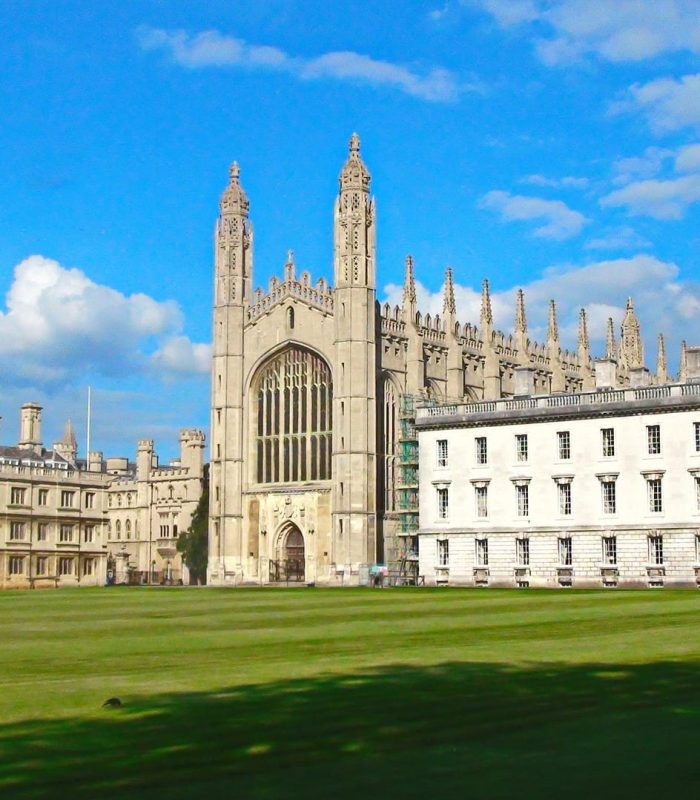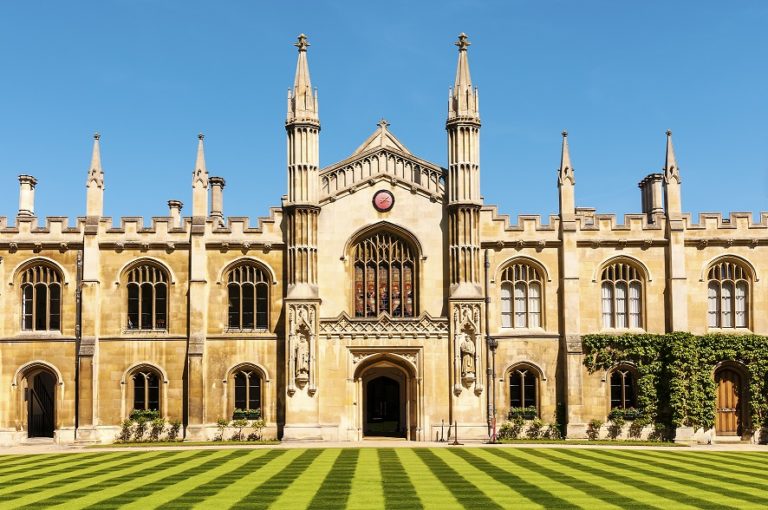Study in England
Study in England – a popular choice for students everywhere!
Elab has assisted over 5,000 students to study in England and the UK in general. England is a global leader in further education with some of the world’s oldest and most eminent universities. Study in England offers students a wonderful learning experience. If successful you will have the opportunity to mix with your peers from every corner of the globe. You will learn to cope with all the exciting challenges you face while living away from home for the first time. Most young people who get this opportunity say it is the best time of their lives. The experiences will stay with you forever.
If you wish to apply to study in Scotland, click here.
If you wish to study in Ireland, click here.
Study in England – how long does it take to study in England?
When you study in England, Bachelor’s courses last for three years. Master’s degrees take between one year – if you are taking a taught degree – and two years – if you choose a research degree.
You can also choose to leave school early and do a university foundation course instead of your final school year to secure your undergraduate place at university.


Study in England - most frequently asked questions


Can I study in England for free?
If you decide to enroll to study in England at a university, as an EU resident you are no longer eligible to apply for UK government loans and grants. Effectively, you cannot study in England for free as an EU resident. Getting a part-time job or applying for scholarships can significantly reduce the overall costs. Many universities offer transition scholarships which are applied automatically and will either reduce the amount you pay to equal that of a home student, for example, the University of Portsmouth. Others, such as Royal Holloway, and the University of London, offer large discounts of up to 60% of the difference between home and international fees. Other universities, such as the University of Southampton, have announced tuition fee reductions of £5,000.
For more information on discounts and transition scholarships to study in England, from our long list of partner universities, call or email us at Elab, and we will give you up-to-date information.
How to study in England after Brexit
Brexit has brought in a number of changes that affect individuals who wish to study in England:
- EU applicants will now have to get a student visa. This is a simple but costly process, which you can do on your smartphone.
- EU students will no longer be able to apply for government loans and grants to cover their tuition fees and other costs.
- Tuition fees for EU students are now calculated according to their new status as “international students” and not home students. This has raised the cost of tuition. However, certain universities have launched initiatives to lighten the financial load by offering generous scholarship programs.
Study in England – the highest ranked universities in England
If you have resolved to study in England and decided on an interesting course, then you must make a huge decision: which university in England to apply to, and how to choose between many outstanding research-led institutions.
The table, below, provides you with a starting point. It ranks the top twenty universities in England and gives you each university’s current world ranking.
University | World Ranking QS 2022 | UK Ranking |
University of Oxford | 2 | 1 |
University of Cambridge | =3 | 2 |
Imperial College, London | 7 | 3 |
UCL, London | =8 | 4 |
LSE, London | 49 | 5 |
King’s College, London | 35 | 6 |
Manchester University | =27 | 7 |
Warwick University | 61 | 8 |
Bristol University | 62 | 9 |
Birmingham University | 90 | 10 |
Queen Mary, London | 117 | 11 |
Sheffield University | 95 | 12 |
Southampton University | 77 | 13 |
York University | 151 | 14 |
Lancaster University | 132 | 15 |
Durham University | 82 | 16 |
Nottingham University | 103 | 17 |
Leeds University | 92 | =18 |
Sussex University | 226 | =18 |
Liverpool University | 189 | 20 |
Study in England – choosing a university in England
You have decided to study in England but have no idea where to apply, so how do you choose a university?
There is no single answer and choosing often tends to be a process of elimination. Everyone has their own specific interests, preferences, lifestyles, and hobbies.
Some people cannot imagine life outside a vibrant city environment and crave excitement.
They enjoy nights out, access to constantly changing galleries, gigs, shows, exhibitions, and the hum of traffic and crowded streets.
Others want a gentler pace of life. They enjoy smaller towns, the sense of community that comes from seeing familiar faces, and knowing where everything is. These students might prefer historic cobbled streets, bicycling from home to college, coffee shops, and small, intimate retail outlets.
Others prefer busy city centers, with their huge department stores, jostling crowds, and major transport networks.
Universities in England offer a wide range of campuses, locations, and atmospheres. You need to think about where you want to live, as well as where you intend to study.
After all, you will be spending three years or more at university, so it is very important to make sure that your choice of university in England suits you in every way. You need to be happy where you are living.
While tables of university rankings are, of course, important, and based on a range of criteria, they do not tell the whole story. You need to weigh up many other factors, which we will touch on now.
Travel factors while studying in England
Most EU students who come to study in England will want to go home at least two or three times a year or invite family and friends to come and visit them.
It is worth finding out whether the trip to and from your college will be simple and cheap, or complicated and therefore far more expensive.
Check the nearest airport and the companies that use it. Look at flight schedules and costs, and make sure you add on any transit fees. For example, the cost of a train ticket, a shuttle bus or a taxi. It all adds up.
Study in England – transport
When you are deciding where to study in England, you need to remember that internal transport is also important. Some towns are small enough to cross by bicycle or on foot, others are huge, and you could find yourself living on the outskirts or in the suburbs in order to economize on accommodation costs.
If this is the case, you will need to buy a travel pass, and nights out could involve taking an Uber or a taxi home. When you are drawing up your budget to study at a university in England, make sure you include external and internal transport costs in your estimates.
Study in England – style of teaching
Another important point to think about when you study in England is that universities in England all have their own style of teaching.
This will determine how the course is delivered and assessed. Similarly, the modules covered in a single subject will vary tremendously, from one university to another, so you need to go through the course outlines very carefully. The balance between theory and practice also differs. The better universities in England work closely with industry partners and offer project work and practical placements. Other universities tend to focus on theory. For example, not every engineering course includes a sandwich year, and not every university which teaches history will cover the period you are interested in studying. Remember to do your research.
How to choose a good University in England?
When you decide to study in England, remember Elab is here to help, so do not hesitate to ring or email us with your “shopping list” of requirements.
We will guide you and help you find precisely what you are looking for. We can also put you in touch with one of our student mentors, who will be able to answer your questions on the teaching approach on a specific course; or what to expect from studying in England at their university.
Study in England - which universities have excellent sports facilities?
A large percentage of universities in England teach sports-related degree courses. Naturally they have the better sport facilities. If you are passionate about sport and all the benefits you will gain from being part of a team, then you should consider one of the following universities:
- University of Bath
- Loughborough University
- University of Leeds
- Lancaster University
- Edge Hill University
- Lincoln University
- St Mary’s Twickenham (where Mo Farah lived and trained before the 2012 Olympics, where he gained gold!)
Study in England - which universities have the best creative arts courses?
The following universities in England have great creative arts courses:
- BIMM University
- University of the Arts, London
- Falmouth University
- Arts University, Bournemouth
- Goldsmith’s, London
- University of East Anglia
Study in England - which student cities have the best nightlife?
Everyone needs a break from their work or studies every now and then. The bigger cities in England have unlimited options to let off some steam and relax:
- London
- Manchester
- Liverpool
- Newcastle
- Leeds
- Sussex
- Northumbria
- Sheffield
and the worst…apparently Durham, York, Exeter, however student life is what you make of it and smaller cities don’t mean less fun. They are often more personal and welcoming.


Study in England - which universities have brilliant student unions?
The best student unions are apparently at:
- Birmingham
- Essex
- Loughborough
- Sheffield
- Leeds
To name a few.
Study in England - hints for choosing the right university
- If you intend to get a part-time job, you will have more opportunities and a higher chance of success if you live in a large university town or a major city.
- Essentially, the north of England is cheaper than the South when it comes to the cost of living.
- Accommodation will be your biggest expense at university in England, and it can also be easier to find somewhere to rent in a city than in a small town – where you may have to live some distance away from campus. Consider staying in a university residence on campus in year one, making friends, and sharing accommodation in years two and three.
- It is worth looking at the career support and advice offered by the universities you are considering, as well as the links they have with industries in the local area.
- Best advice – go to England and visit a few universities before you apply. Campus tours are available in the summer.
If you find yourself torn or stuck, or just want to run through some ideas, then call us here at Elab. We can talk through your options and offer you suggestions, information, and help in choosing between the excellent universities in England. We have sent thousands of students to university in England before you, and have the experience, resources, and university contacts to make all the difference. Get in touch!
Study in England - the Russell Group
The Russell Group is the British equivalent of the American Ivy League and consists of 24 prestigious, research-intensive public universities which publish three-quarters of the world-leading research produced in the UK.
Study in England – universities in the Russell Group
- University of Birmingham
- University of Bristol
- University of Cambridge
- Cardiff University
- Durham University
- University of Edinburgh
- University of Exeter
- University of Glasgow
- Imperial College London
- King’s College London
- University of Leeds
- University of Liverpool
- London School of Economics and Political Science
- University of Manchester
- Newcastle University
- University of Nottingham
- University of Oxford
- Queen Mary, University of London
- Queen’s University Belfast
- University of Sheffield
- University College London
- University of Warwick
- University of York
Study in England – courses to choose
If you have decided to study in England, the table below lists the subjects taught at individual universities that are ranked in the national Top Ten. This is not an exhaustive list, since many of the universities rank highly in 20, 30, or even 40 subjects, but it does give you an indication of where to apply to, if you are interested in a specific course and unsure where to go.
University | Highly rated courses | Number of students |
Cambridge | Medicine, Psychology, Law, Engineering, Economics +39 other subjects | 23,250 |
Oxford | Law, Medicine, Linguists, Politics, Engineering +30 | 23,900 |
LSE | Law, Politics, Sociology, Economics +6 | 10,980 |
Imperial College | Astronomy, Physics, Mechanical Engineering, Civil Engineering, Mathematics +9 | 19.014 |
Durham | Accounting, Marketing, Finance, Biological Sciences, Philosophy + 26 | 19.025 |
UCL | East European languages, Psychology, Ancient History, Anthropology ,Economics +18 | 43,867 |
Warwick | Physics, Astronomy, Chemistry, Linguistics +13 | 26,429 |
Exeter | Geology, Marketing, Sports Science, Archaeology +19 | 22,011 |
Birmingham | Dentistry, Nursing, Social Work, Physiotherapy, Languages +19 | 33,989 |
Bristol | Veterinary Medicine, Aeronautical Engineering, Psychology, Sociology +10 | 25,950 |
Edinburgh | Medicine, Veterinary Medicine, Law, Theology, Mathematics +13 | 41,302 |
Leeds | Food science, Media Studies, Geology ,Music, Art and Design +12 | 36,250 |
Manchester | Drama, Dance, Nursing, English, French, German, Astronomy +15 | 40,205 |
Southampton | Geology, Physiology, Music, Marketing, Mechanical Engineering +10 | 25,000 |
Glasgow | Medicine, Pharmacy, Music, Chemistry, Law, + 26 | 30,012 |
KCL | Dentistry, Classics and Ancient History, Biological Science +7 | 27,500 |
Nottingham | Social Policy, Creative Writing, East and South Asian Studies +9 | 33,530 |
York | Archaeology, History of Art, Architecture and Design, Nursing, Social Work | 19,380 |
Newcastle | Agriculture and Forestry, Dentistry, Creative Writing +8 | 37,864 |
Study in England – most popular courses
Popularity ranking | Courses | Subjects |
1. | Economics, Finance, Marketing, Banking, Accounting, International Business | |
2. | Natural Sciences | Biology, Mathematics, Computer science, Chemistry, Physics, Earth Science, Astronomy |
3. | Engineering and technology | Chemical, Civil or Environmental Engineering, Electronic Engineering, Mechanical Engineering, Aeronautics, IT, Software Engineering, etc |
4. | Dentistry, Pharmacology, Veterinary surgery, Molecular medicine, Psychotherapy, etc | |
5. | Law | Criminology, International Human Rights Law etc |
6. | Social Sciences | Political science, History, Anthropology, Psychology, etc |
7. | Sports Science | Exercise Nutrition, Physiology, Sports and Exercise Science, etc |
8. | Media and communication | Film studies, TV studies, Journalism, Digital media, etc |
9. | The Arts | Fashion, Fine Arts, Graphics, etc |
10. | Hospitality and tourism | Hospitality and Tourism marketing etc |
In addition, nursing, marine biology, and physiotherapy are attracting growing numbers of applicants every year. Competition to get a place to study computer science in England is becoming fiercer each year.
Study in England - how Elab can help you choose a course
It can be daunting to read lists and tables to choose a course to study. If you would like to get advice, and information and talk through your options with a specialist consultant, then pick up the phone and call us, here at Elab, or drop us an email. We have the experience, passion, and knowledge to guide you or put you in touch with one of our mentors, who is currently studying at a university you hope to attend. You will get the inside track on the university you are considering and be able to ask all the questions you need answered to make a balanced decision.
Study in England - Medicine
Applying to study medicine in England is a complex process. Getting accepted onto a course needs preparation and excellent secondary school grades. Competition to study medicine in England is extremely fierce. You will also be expected to sit either the UCAT Test or the BMAT Test entrance examinations – depending on which university you have decided to apply to. You will also have to deliver an IELTS certificate showing your English proficiency. Medicine is a five-to-six-year course. You will then be required to do a two-year Foundation Programme as a “doctor in training”, provisionally registered with the UK governing body (General Medical Council). If you wish to specialize, your studies will be longer.


Study in England - apply to study medicine in the England
Applications to study medicine in England are treated like every other course and processed through UCAS, the central admissions system. You are permitted to apply for medicine to four different universities. UCAS can process five choices per applicant, so you are recommended to use up your last choice to apply for something medically related, like biomedical science. With this, you can eventually get onto the Graduate Entry Programme (GEP). The GEP is designed for graduates who already have a science-related degree and wish to do a four-year accelerated course in medicine.
Study in England -Where can I study medicine in England ?
You have a choice of 37 universities in England offering medical courses. For the most part, these universities expect you to pass the UCAT entrance exam, but the BMAT Test is favoured by:
- University of Oxford
- University of Cambridge
- UCL
- Imperial College London
- University of Brighton
- University of Leeds
- Lancaster University
It is, of course, possible to sit both and widen your choices, but that would demand serious work!
Remember, you can only sit it once a year, so if you pass the exam in 2022, it can’t be counted in 2023. You would have to sit it again. If you have any questions about the entrance exams and how they compare, call us here at Elab and we will talk you through the differences and give you information on registration deadlines, exam preparation, and the dates when you can sit the papers.
Study medicine in England – What is the GAMSAT?
The GAMSAT is the entrance examination for applicants to the Graduate Entry Programme in medicine.
Study medicine in England – requirements
To study medicine in England, unsurprisingly, require strong scores in chemistry, biology and one other science subject. BUT if you have brilliant scores and lack the science subject, you can apply for a six-year course. This includes what is known as the preliminary year. During this year, you will upgrade your science knowledge, before starting your medicine degree.
To give you an idea of the average scores of candidates who go on to study medicine is not easy, because whether or not you get a place is dependent on many factors, among the most important of which is the interview. As a rule of thumb, however, you should aim for an IB score of 37 upwards.
In addition to passing your UCAT or BMAT exams, doing well in your final exams at school, having a high IELTS score and having written a brilliant Personal Statement there are two other factors to consider:
- work experience
- the interview.
Let’s now look at these, in turn.
Study in England – Medicine and Work Experience
It is impossible to overemphasise the importance of getting practical experience to secure a place to study medicine in England. Whilst difficult, examples include work in a hospital, a clinic, a vet’s surgery, a care home, a mental hospital, a children’s ward, or shadowing your local doctor. You can build your entire Personal Statement around your work experience. You need the experience to justify your views, or as a source of reference when answering interview questions, using examples from what you have seen, watched or done.
In addition, you can shadow healthcare workers, or take a more hands-on approach. Certain universities in England specify that you need to have had experience in two different environments. Others go into greater detail and require a certain number of hours and at least two settings; still, other universities in England want to know that you have had contact with patients. Get in touch with us at Elab and we will tell you exactly what you need to do.
Remember, it is not easy to get work experience in hospitals, and this is because doctors are obliged to guarantee patient confidentiality. Your presence could make this impossible. In addition, hospitals are not insured for work experience volunteers. You are far more likely to get a voluntary job in a hospice, nursery or care home. This will help you to understand precisely what you intend to study and do, and check whether this particular career path suits your skills, your personality and your sensibilities.
Study in England – The interview for medicine
When you apply to study medicine in England, you will find most universities have moved away from traditional interview formats. Instead of sitting in front of one or more interviewers and answering questions, you will find yourself doing an MMI (Multiple Mini Interview) circuits. What this means is that you will spend two hours or so, moving between stations and tackling a range of tasks.
For example, you may be faced with an actor, and obliged to tell him or her that you have just run over their only friend, their beloved cat. You will be assessed on how empathetic you are in giving the bad news. They will assess your communication skills, posture, hand and body language and tone of voice. At the next station, you might have to show your precision and attention to detail by explaining how to do up a tie without touching it. Or you could find yourself being asked to interpret a sheet of data, to decide who to save out of five people if your city is being threatened with a nuclear attack.
Or you could be invited to discuss whether euthanasia and abortion are appropriate in specific circumstances. You may then be asked about current healthcare issues, or what you would do if you saw a surgeon drinking, just before he or she was about to start operating on a patient.
Essentially, the MMI assesses your soft skills, your compassion, judgment, your priorities and decision-making skills. It is an important part of the application process.
What are my career prospects once I have qualified?
There are many specialisations to choose from. Below are some career examples:
- anaesthetist
- ophthalmologist
- psychiatrist
- cardiologist
- paediatrician
- general practitioner
- hospital doctor
- neurologist
- surgeon
As you can see, applying to study medicine in England is a complex process. Here at Elab, we run a GetinMed workshop which will help you to prepare your application and get ready for the entrance exam and interview.
Drop us an email or call us, here at Elab, to talk through your options . Let us work together to maximise your chances of being accepted to study medicine in England.


Study in England - Postgraduate courses
Over a third of the students who come to study in England apply for postgraduate courses. Excellent research output and amazing resources and facilities make England a highly popular destination for Master’s and PhD students.
International students who wish to study postgraduate courses in England are normally expected to have achieved a 2:1 in their first degree, to have a strong knowledge of English, and provide a certificate of language proficiency. In addition, certain courses expect applicants to have some practical experience as well as a degree – the MBA is a prime example.
Applications are made directly to the university and should be submitted a few months before the deadline. Popular courses fill up very fast. There are hundreds of subjects you can study at the postgraduate level, the most popular being:
|
|
|
|
|
|
|
|
|
|
|
|
|
Study in England – requirements
English universities set their own entry requirements, which vary according to the course, and the institution. Good academic grades are expected in England, with higher ranked universities requiring 34 and upwards in the International Baccalaureate (IB). Below are examples of further requirements to study in England, many are course specific.
Generally, you will need to demonstrate your English language proficiency by submitting your IELTS or TOEFL scores.
You may also need to sit an entrance exam if you are applying to study law, medicine, mathematics, or interested in getting a place at Oxford or Cambridge.
If you want to study medicine, veterinary medicine, dentistry or biomedical science in England, you will need to pass the BMAT or the UCAT.
If you are intending to study law, you will generally be asked to sit the LNAT or the Cambridge Law Test.
The universities of Oxford and Cambridge set a range of admission tests, which cover Classics (CAT), English (ELAT), Modern Languages (MLAT), Physics (PAT), Mathematics (MAT)and Thinking Skills (required by Oxbridge and UCL), as well as subject-specific entry exams. Contact Elab for further information.
If you are applying to study art, design, architecture or fine arts, you may need to prepare and submit a portfolio.
Applicants for courses in performing arts, such as music or drama, may be asked to send in a video or attend an audition.
Once you have sat the entrance exams, the next stage required by certain universities is the interview, which can be held online or in person.
Study in England – the application process
For those wanting to study in England, all undergraduate university applications are processed through a central online system known as UCAS. This system opens in early September. Whilst the centralized system simplifies general matters, the individual application process has complications depending on your selections. The crucial cut-off date to apply to study in England, excluding Oxbridge, is 15 January. Although this deadline might seem a good few months away, it is advised to start the application process early. Remember, you will need to get references organized and uploaded and write a strong, convincing Personal Statement. You probably need to pass IELTS, and possibly other entrance exams mentioned earlier, or an interview. Making sure you have all the documents you need could mean chasing individuals and schools and waiting for their responses. So, get started.
Study in England: How does the university application process work?
Applications to study in England are done through the UCAS system. In order to submit a UCAS application, you will have to pay a small submission fee. You can pay online, with a credit or debit card.
The limit is five applications, so draw up a short list of five universities and select the courses you want to apply to. You need to go online and register with UCAS. You will be given a username and will set up a password. You will need to answer security questions to access your account in the future. You can then enter your personal details and contact info. Check the application deadlines for your university courses. The general deadline is January 15th however some universities, such as Oxford or Cambridge, have earlier deadlines to complete all formalities.
- You will be asked to fill in a section about your educational history. Put in any results they require that you already know. When you get your final secondary school results, you can upload them to UCAS. In some cases, you can send them directly to the university. For example, UCAS will pass on IB results to universities, but this is not the case with all national qualifications . Depending on the university, you may be asked to send them transcripts.
- Make sure the format is correct and that your referee includes your predicted grades. Certain UK universities will not even consider applications which do not include this information.
- Finally, you will be asked about your work history. Voluntary work should be added in your Personal Statement, not here.
- And now we come to Your Chance to Shine – the Personal Statement. This should be 4000 characters long including spaces. It should convince the admissions committee that you are the right student for the course. The number of characters is quite limited so you will need help to get the best results. Get feedback from a friend, relative, or professionals like Elab once you have a draft. Talk about yourself, your experience, dreams, ambitions, achievements and why you are applying to study a particular subject. You need to appeal to the reader. Elab can help you prepare a brilliant Personal Statement, which stands out from the crowd and is grammatically correct. It will give those people reading it a clear idea of who you are, what you stand for and what you offer the university.
- The last step is getting a reference because you cannot upload your application until this is ready. Most people ask a teacher to write a reference. It could also be someone who knows your academic abilities from a professional perspective. For example, if you want to study fashion, and have been working with a fashion company, organising shoots and marketing campaigns, you could ask the owner of the label to be your referee.
- Once complete, sign in to your UCAS account and upload you application.
- UCAS will contact you by email whenever there is any activity on your account. This will be particularly important once you start getting replies from universities. You need to respond to any offers you receive in a relatively short period of time.
Study in England – What is UCAS Track?
UCAS track allows you to follow progress on your UCAS applications online.
- You can also use Track to change your email address to give someone else the right to make decisions on your behalf. For example, if you go to the hospital, travel abroad for a long break, or are on a sport or other tour. In these circumstances, it could be wise to nominate a parent to run your account.
- All offers of places and replies are processed through Track.
- The track allows you to swap your choices of courses to study. There are specific deadlines for changing your mind. If this happens, call Elab and we will walk you through the process.
Study in England – what is UCAS Clearing?
The clearing is a system provided by UCAS to match people who have not found a place at university with unfilled places. It takes place later in the process after applications are in and places filling up. You can’t apply to use Clearing to study in England unless you have already uploaded your original application into UCAS.
Anyone who has already applied through UCAS and has not received an offer by the beginning of July is eligible to apply. The dates for Clearing vary from year to year, but normally run from the end of June to the end of September/mid-October. Elab will help you with this.
There are a number of reasons why you might need Clearing:
- you have just received your exam results and they are lower than the grades required in your university offer
- you are applying after 30 June
- you have decided to decline your first choice university on Track. You may have changed your mind about the course you want to study, or have decided that you would rather go to university somewhere else
- you have only recently decided to study in England and did not apply to UCAS for five courses and universities by the January. 15th
Study in England: Do all universities offer places in Clearing?
This varies from year to year depending on the trends, student interests, and demand for places in England. Oxford and Cambridge do not take part. UCL, LSE, Imperial and some members of the Russell Group generally have waiting lists and have no extra places to fill.
Study in England : Can you apply for every course through Clearing?
Certain courses, such as medicine, dentistry and veterinary science are very heavily oversubscribed. The chances of being offered a place are low but possible. Be flexible. You are not obliged to apply for the same degree course as you did originally. You may need to think laterally. If, for example, you wanted to study Fashion, why not consider Art and Design? If you have set your heart on Medicine, perhaps you could think about Biomedical Science? If you are drawn to economics, why not link it to business and apply for a joint degree? Try, however, not to make the change too radical. Universities in England will not believe that someone who applied to do French has suddenly fallen in love with physics over the summer months!
Which courses are most frequently filled through Clearing?
The five most commonly available courses in England are:
- Business and Administrative Studies
- Courses connected with medicine
- Biological sciences
- Social Sciences
- Engineering
The process of Clearing is a little complicated but don’t give up if you want to study in England. It is a great choice. And Elab can help you. You can only apply for one course at a time. If you do not manage to get an offer on your first attempt, then you can go on to apply for another course. The availability of courses and universities varies from year to year, and you will not get a clear idea of where to apply until Clearing opens.
Study in England – applications through Clearing
- Prepare for the opening of Clearing. Make sure you have read through your Personal Statement again, because you may be asked questions based on what you have written.
- Use the UCAS search tool to discover which universities have places on courses they want to fill, and jot the information down – if you rely on your memory, you could forget precisely what is being offered and where!
- Ring the university you want to apply to. Most of the Clearing process takes place on the telephone. You will be asked about your results, why you are keen on studying a course, what experience you have etc. Some phone interviews last a matter of minutes, while others can continue for 30-40 minutes. Make sure you ask questions too, and check that your grades or UCAS points meet their requirements.
- You may be offered a place directly on the telephone. If this happens, you must update your UCAS Track choices.
- Wait for the university to confirm that you have been accepted. If they do not do so, start the process again and ring another university.
- Don’t panic. Remain calm and organized. Most students are very successful with Clearing with our support.


Study in England: Costs
Study in England: How much are tuition fees for EU students?
Since Brexit, EU students wanting to study in England can no longer receive government-backed student loans to cover their tuition fees. They also now pay the higher international student fees.
Fees depend on your choice of university and course, and vary from £10,000-£38,000 per year, with medicine being at the more expensive end of the scale. Average tuition costs in England come in at £22,000 at undergraduate level, and slightly higher at postgraduate level. Our partner Universities are offering EU students programmes and courses to reduce tuition fees. Contact Elab for up-to-date information.
Study in England: the cost of a student visa
EU resident applicants wanting to study in England will need to pay a fee to apply for their Tier 4 student visa. It is the region of GBP 400. You may be asked to demonstrate that you have the money to support yourself, although this normally does not apply to EU students.
Study in England -the cost of living
Recent surveys have established that the average student budget of 1500 euros per month for general expenses is divided as follows:
34 % on rent
12 % on transport
27 % on food
8 % on utilities
11 %on leisure activities
8 % on clothes, books, accessories
Rent is of course a major expense, and your budget depends on where you are studying. Studying and living in London, for example, is significantly more expensive than in every other city.
Besides location, your living expenses will depend on what accommodation you choose. You could apply to live in university halls of residence, find a house or flat to share with others or stay in your own studio apartment. Universities have accommodation departments that assign campus rooms and can put you in touch with recommended local agents. Collegiate universities, such as Durham and Oxbridge, will offer you college accommodation once you have been accepted.
Study in England – scholarships
When you study in England you become eligible for a wide range of scholarships, some of which are awarded automatically. Other scholarships in England are for academic results or outstanding achievements in specific fields. Commercial and charitable organizations as well as individual universities, all offer scholarships, although you should note that many are only available to postgraduate students, for example, Euraxxes and Chevening scholarships.
Study in England – leading universities in England
Study in England –leading universities in England
The following universities offer a wide range of courses in different parts of England and will give you a taste of what you could expect from choosing to study in England. Contact Elab with any questions you may have or we can put you touch with one of our many mentors, currently studying in England
- University of Durham
- LSE
- University of Newcastle
- Oxford University or Cambridge University
- University of Sheffield
- University of Southampton
- University of Warwick
- University of the Arts, London
How your application with Elab will look like?
![5 steps to success Elab Education Laboratory [ENG]](https://elabedu.eu/wp-content/uploads/2022/06/english-5-steps-poster-03-1024x580.png)
![5 steps to success Elab Education Laboratory [ENG]](https://elabedu.eu/wp-content/uploads/2022/06/english-5-steps-poster-03-1024x580.png)
Step 1: Student Induction & Diagnostics
- Preliminary notes of students academic record, interests and aspirations
- Student Diagnostics
Step 2: University Search & Student Profile Development
- Preparation of Universities Research Table
- Extra-curricular Activities Development (if applicable)
Step 3: Process Planning & Preparation
- Finalise the overall process plan & individual Timeline
- Review Mentor and Tutor plans in relation to documents, exams and activities
- Passing the required entrance exams
Step 4: Application Finalisation & Submission
- Update Application Checklist for Final Choice Universities requirements
- Submit student academic application
Step 5: Offer Acceptance & Decision Time
- Review university offers
- Provide students with contacts and links to accommodation offices
Study abroad with Elab - reviews from our applicants:
Students who study abroad have very positive opinions of
the courses and life in general. Below are a few examples of opinions from Elabs students studying abroad or who recently completed their studies:


Start your UK Application
First step: create a bulletproof strategy for getting into a top UK university. We can help.
Upcoming Events
Upcoming Education Events to feed your brain.




